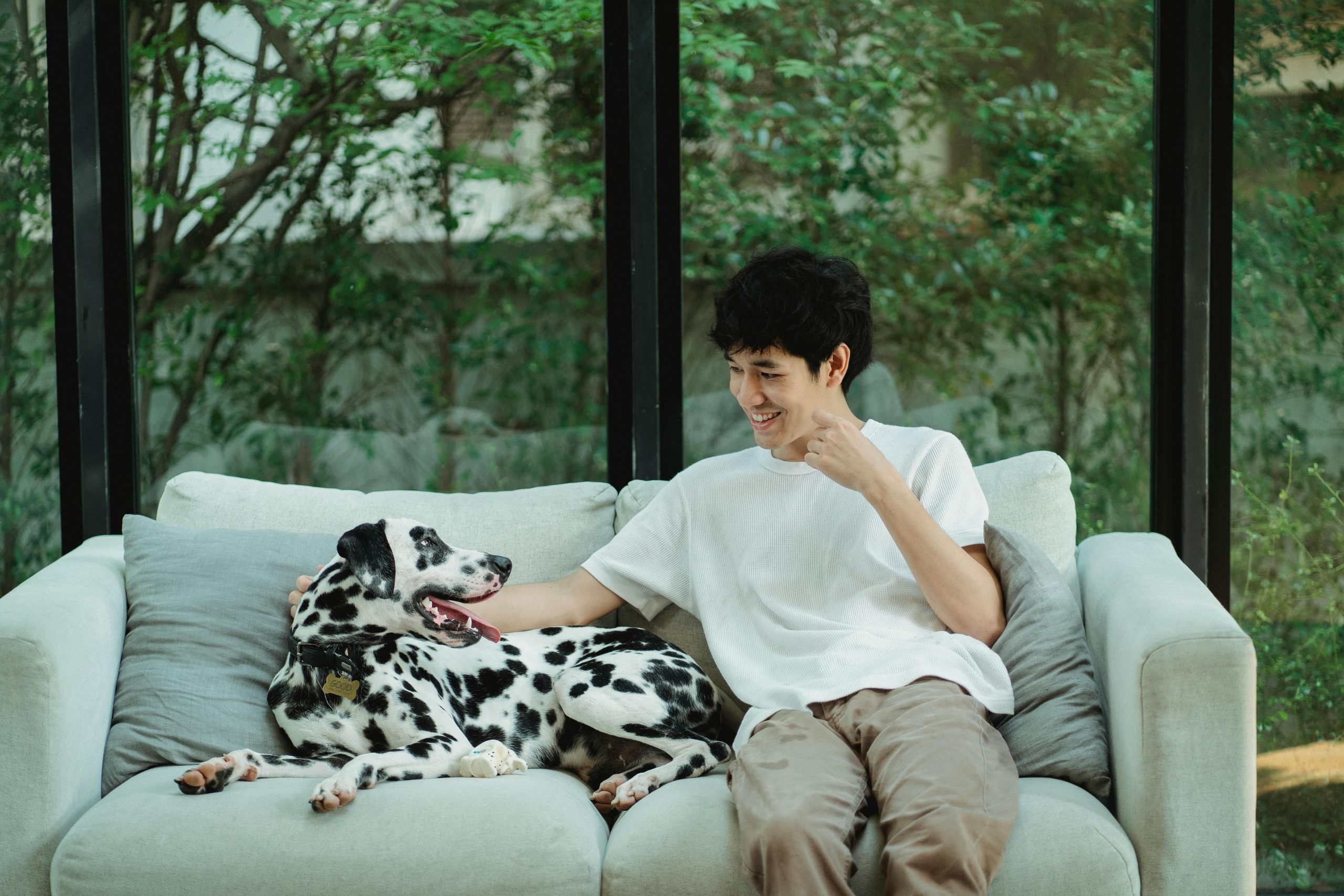Welcome! Whether you’ve just learned that you’re Autistic or whether you’ve known for some time now, we’re thrilled that you’re here.
As an Autistic person, you might find that you benefit from certain accommodations, supports and strategies to help you with various aspects of your life, such as socialising, communicating, thinking and processing. As we are an Autistic-led organisation, we know that the path to discovering how best to embrace your authentic, Autistic identity is a lifelong journey, so we aim to provide information and resources to help you along the way.
At Reframing Autism, we approach things a little differently than you might have seen elsewhere. We want to change the frame through which society views Autism, so that Autistic people can flourish – authentically – to achieve genuine acceptance, inclusion and active citizenship.
We’re here to provide information and resources to help you thrive, flourish, and be your amazing self. Since we are Autistic too, we approach Autism in a de-pathologised, neurodiversity-affirming way. Many of us have had to learn (or re-learn) what it means to be Autistic, and we welcome you to join in that learning with us.
We believe that when we – as the Autistic community – lift each other up, we all rise. That’s why we’re so excited that you’re here.
Below, you’ll find some resources and information that might help you in your journey.

There is a common saying in the Autistic community that if you’ve met one Autistic person, you’ve met one Autistic person. The implication, of course, is that we are each unique individuals and our experience of Autism will be similarly unique. Nevertheless, there are still some commonalities in our Autistic experiences that are collective, and unify us as a community. Fundamentally, all Autistic people have brains which have developed differently to non-autistic brains (thus we call Autism a neurodevelopmental difference). Autistic individuals think, move, interact, sense and process differently to what might be expected. Broadly, we’ve grouped these as differences in the way we communicate and socialise, and in the way we think and process.
Differences in the way we socialise and communicate include how we might feel most comfortable to communicate (some common differences include not using speech to communicate at all or only in some contexts, having significant anxieties using phones, or having a preference for written communication), and how we connect with others (perhaps we have a preference to socialise online, or in a one-on-one or small group context, or with other neurodivergent folk).
Differences in the way we think and process include differences in how we understand and respond to our sensory environments (perhaps finding certain sensory stimuli overwhelming), in our executive functioning (those mental processes allowing us to plan, remember, and multitask… or not!), in our ability to focus on areas of passion (often called hyperfocus or monotropism), and in our ability to see patterns, details and solutions that others miss.
Of course, these examples are just some broad ways that your Autistic brain might work, and not all of them will apply equally to every Autistic person. Just remember, your organic Autistic ways of socialising, communicating, thinking and processing are not disordered or defective or broken; they are just different. You are not broken, you are a wonderful, whole, Autistic person, and we celebrate and welcome you.

You’re Autistic, so you’re likely to have noticed some differences between yourself and your non-autistic peers. This is true whether you’ve known you are Autistic for many years, or if your Autistic identity is relatively new. Many Autistic people report always having had a sense of “feeling different”, whether they understood why or not. So, for some, getting a formal diagnosis (or realising that they are Autistic through self-identification) can elicit a feeling of finally discovering their true identity, or “coming home”.
Still, for others, being Autistic can come with an ebb and flow of mixed feelings. When an Autistic person’s needs aren’t accommodated for, or when we don’t receive the support that we need, thriving in life can become significantly more difficult, and this can bring mixed feelings about being Autistic. A lifetime of learned “masking” (or hiding one’s Autistic traits to conform to a more neurotypical or neuronormative expectation of behaviour) can also make us feel shame about being Autistic, as the received stigma and discrimination we have experienced is internalised as “our fault” or part of our identity.
That is why we’re so passionate at Reframing Autism about Autistic people learning about themselves and what they need, learning to advocate for what they need, and finding community with other Autistic people. We believe that as Autistic people, we need to experience acceptance (from ourselves and others) of our authentic and autonomous selves to flourish. And, as with all human beings, when our needs are met and our authentic selves are welcomed and valued, we’re able to flourish.

One way that many Autistic individuals experience welcome is through connection with the broader Autistic community. Research shows that Autistic people find it easier and more comfortable to socialise with other Autistic people, who we find to be more accepting than non-autistic peers and family might be. In other words, we connect better with our own “neurokindred”. If you think of Autism as a culture, we enjoy being part of our own Autistic culture rather than always trying to learn how to be “fluent” and comfortable in non-autistic culture.
For many of us, our connection to the Autistic community is online, through social media, and there are many online groups run by and for Autistic people to foster a sense of community. Sometimes, such online groups also have a physical presence or “in real life” meet-ups. When a space (virtual or not) is run by Autistics for Autistics, we call this “Autistic space” and for many Autists, this denotes safety and welcome.
For some of us though, we still might not feel like we “fit” in the Autistic community, or we may not feel “at home” or comfortable among other Autistic people at all. This doesn’t mean you’re “not Autistic enough”, or that you’re any less Autistic or any less valued as an Autistic person. Not every Autistic person is automatically going to befriend and connect with every other Autistic person! We are, after all, individuals who find connection on multiple levels, not just shared neurotype! It’s important to remember that your Autistic journey and experiences are yours alone, and what might offer one Autistic person happiness and satisfaction, may not work for another. This is as true for connecting in with the Autistic community as it is for any other strategy we might trial.

Autism Essentials is a free, self-paced course that provides a solid understanding of Autism in a way that is neuro-affirming. It is designed for a wide variety of lived experiences as well as different levels of pre-existing knowledge about Autism – from those that are totally new to the topic to those that have formal education in Autism.
With over 13,000 registrations since its launch last year, Autism Essentials has become one of our most popular learning opportunities to date.
Whether you are Autistic, formally diagnosed, self-identified or think you might be Autistic, we hope you learn something new or deepen and extend your existing knowledge of Autism and the Autistic community through this free course.
What makes it unique? Unlike other courses offered on Autism, it is developed, designed, and presented by an all-Autistic team. It is not only information-rich, but actively centres Autistic experience as meaningful, and approaches Autism from a perspective of building broad and genuine wellbeing for every Autistic individual and the Autistic community.
Here are some common questions that we receive which might resonate with you, too. If you have any other queries, we’d be happy to assist – just get in touch with us by clicking the button below.

The Reframing Autism team would like to acknowledge the Traditional Owners of the lands on which we have the privilege to learn, work, and grow. Whilst we gather on many different parts of this Country, the RA team walk on the land of the Awabakal, Birpai, Whadjak, and Wiradjuri peoples.
We are committed to honouring the rich culture of the Aboriginal and Torres Strait Islander peoples of this Country, and the diversity and learning opportunities with which they provide us. We extend our gratitude and respect to all Aboriginal and Torres Strait Islander peoples, and to all Elders past and present, for their wisdom, their resilience, and for helping this Country to heal.